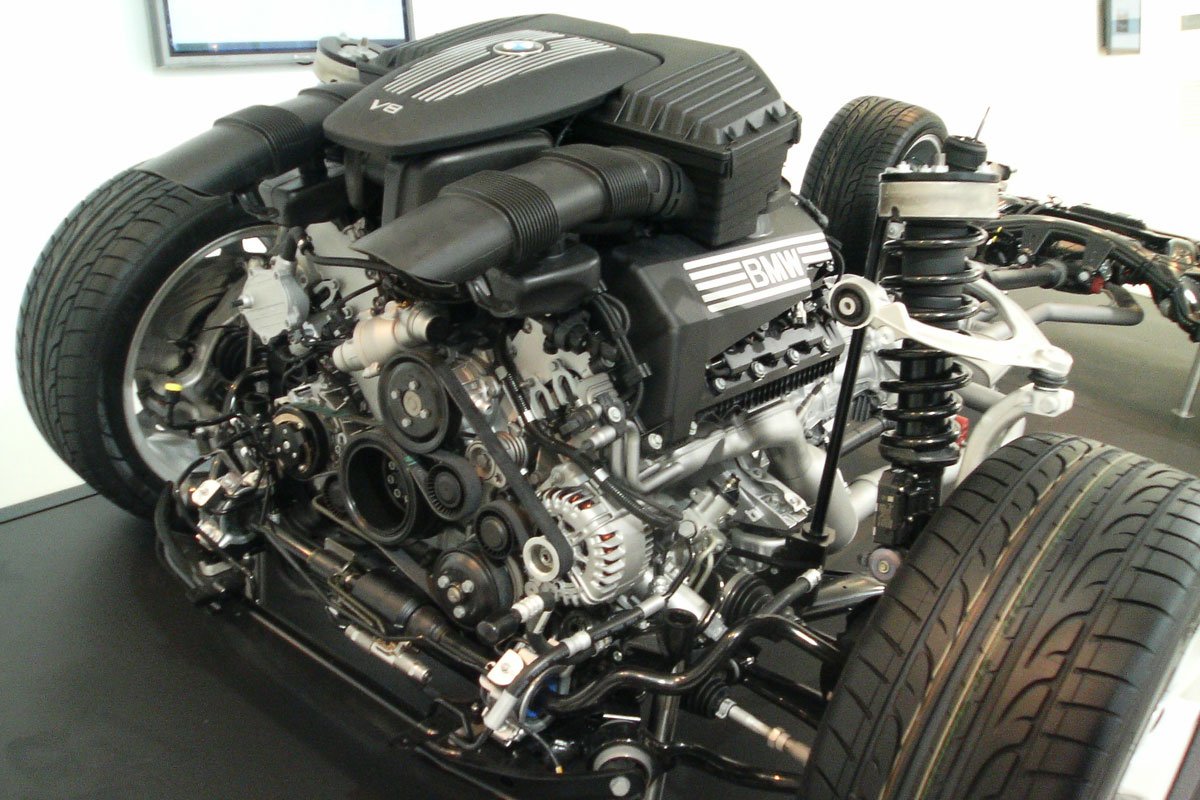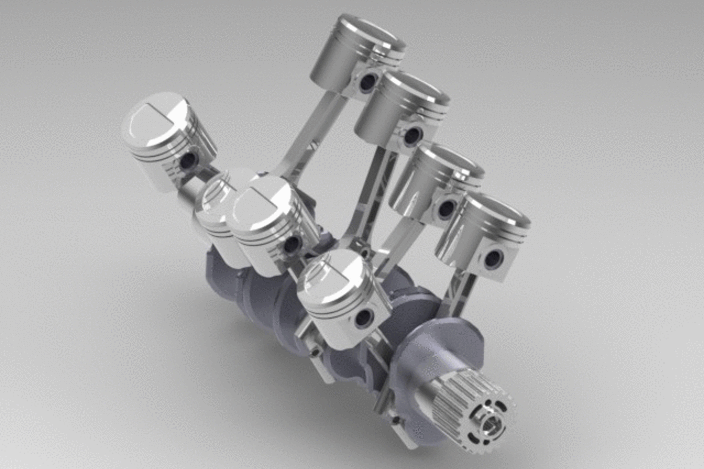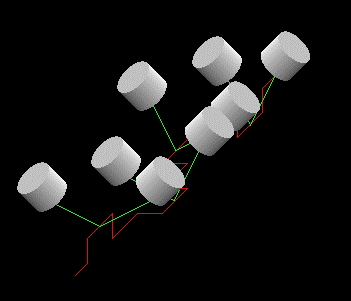Hello, Guys today I will explain what is V8 engine and how it works. V8 engine gets its name from having a cylinder block in the shape of a “V”. With four-cylinder on one side and 4 on another. All 8 pistons ride on the same crankshaft. The piston is arranged opposite to each other like 1 and 2 are opposite to each other.
The setup is a 90° layout because, for every 90° rotation of the crankshaft, a cylinder will be fired. The firing order will be 1-8-4-3-6-5-7-2. V8 is just set 4 of these 2 cylinder devices matched together.
Working
V8 works similarly to a normal inline 4-cylinder engine. The V8 engine also has 4 strokes Intake, Compression, Power and exhaust, i.e. 4 strokes per cylinder means 32 strokes in total. In an inline 4-cylinder engine only one cylinder fires in one crankshaft rotation, but in V8 there is a cylinder firing at every 90° rotation which means 2 cylinder fire in one crankshaft rotation. This means more smooth power delivery compared to inline 4.
To know how petrol or diesel engine works click here, and to know how valves work click here. The difference between an inline engine and a V engine is you need to balance the engine and maintain a centre of gravity. We balance the engine by adding weight to the crankshaft. There is 2 piston in every crankshaft bearing.
When one piston reaches the top the counterbalance is directly opposite to it and balances the force, and as it rotates another 90° it balances the other piston connected to it. With another 90° rotation the first piston has reached the bottom and the counterweight balances the downward force with an upward force, it is repeated for the second piston. The weights balance the rocking movement from the movement of the pistons.
Types of Crankshaft
1 Cross-Plane Crankshaft
On a cross-plane crank, the connection point on the crankshaft is offset 90°, which means each piston operates on 2 planes. The firing order is 1-5-4-2-6-3-7-8
2 Flat-Plane Crankshaft
On a flat-plane crank, the connection point on the crankshaft is offset 180°, which means each piston operates on a single plane. The firing order is 1-8-2-7-4-5-3-6
Advantages
- They produce more power
- Compact for a large engine with a big displacement
- Very little vibration
- The higher centre of gravity compared to some engines
Disadvantages
- They are complex because they need two separate cylinder heads compared to an inline engine which requires only one
- Heavier than smaller style engine
V8 are widely used engines in performance cars, they are more reliable when compared to inline engines which take up more space for this number of cylinders. I am going to soon write about all engine types currently used.





